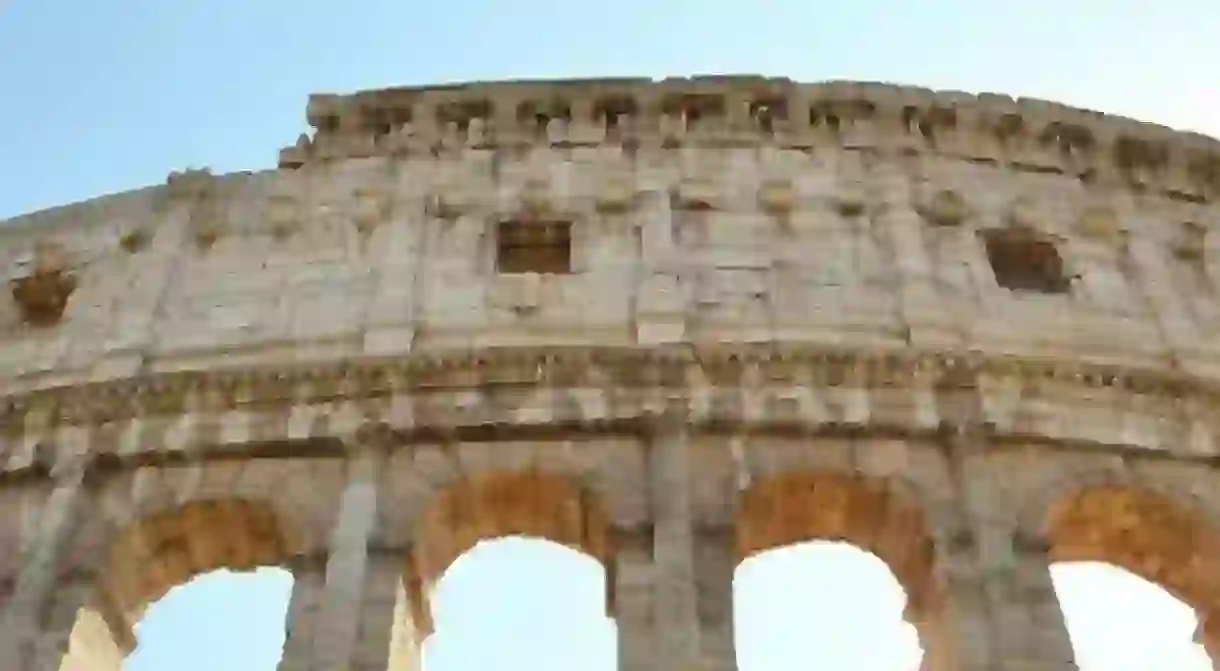20 Italian Words And Phrases To Learn Before You Travel To Rome

Despite its long and rich cultural history, Italy was only unified as a political state in 1861, meaning there are strong local flavors across its 20 regions in terms of traditions, cuisine and of course, dialect. Italians have keen ears and can tell accents apart not just from north to south, but even from village to village. Knowing even a small bit of regional dialect will help you decipher common conversations and ensures you to receive smiles and praises form locals. Roman Dialect, referred to as Romanesco or Romanaccio, includes phrases, expressions and mannerisms that make it distinct from other dialects in the peninsula; take note of these words and phrases to help you navigate the capital like a pro.
Ahó – This roughly translates to “Hey” and is heard all over town. This informal exclamation/sound is used to catch someone’s attention and is often drawn out to sound like ‘Aooooooo’.
Bella! – This translates to ‘Ciao’ or ‘Buongiorno’. It is an informal greeting used among friends and can also be used among men (keeping the word in the feminine conjugation). It is often used in combination with the above, ‘Aoooo Bella!’.
Ammazza! – This word means ‘wow’, ‘oh my goodness’ or ‘I can’t believe it’.
Avoja! – This word means ‘very much’ or “a lot”.
Dai – “come on”. In Romanesco it is often written as ‘daje’.
Ma che davero? – ‘Really? I can’t believe it!’
Anvedi oh che roba – ‘Would you look at that?’. It can also be shortened to ‘anvedi’.
Nnamo a magna – ‘Let’s go eat’ in Roman dialect. Andiamo a mangiare would be the equivalent in normal Italian.
E mo’ che famo? – ‘And now what do we do?’ The key word is ‘mo’ which means ‘now’ and is used constantly in Roman slang.
Da paura – This literally means something like ‘scary good’ but translates to ‘awesome’ or ‘cool’.
Che figata – ‘What a cool thing’.
Na cifra – ‘A lot’, for instance ‘How much did it cost?’ Na cifra.
Bono or Bona – A derivation of the Italian word buono which means good, it can be used to refer to food or implies ‘beautiful’ when used for people.
Hai spicci? – ‘Do you have change?’ (as in, coins). You will hear this at bars and supermarkets all over the city because Rome continues to use physical cash more than credit cards.
Scendi? – ‘Are you getting off?’ in the context of public transportation. If you plan on taking the bus or metro, get used to hearing people ask this over and over again, especially if you’ve positioned yourself near the door. Romans get anxious to make it off at their stop and begin maneuvering their way to the exit several minutes before they need to get off.
Figurati – ‘Don’t worry about it’ or ‘it’s nothing’.
Magari – This word roughly translates to ‘if only’ and can mean ‘maybe’ and ‘I wish’.
Basta – ‘Stop’ or ‘enough’.
Meno Male – ‘Thank goodness’ or ‘phew’.
Buonasera – While this literally translates to ‘good evening’, in Italian it is also used to mean ‘good afternoon’ (which doesn’t have a phrase). Italians begin to use it after lunch, around 2 or 3 p.m.
Once you’ve mastered these words and phrases, why not move onto the language of Italian gestures?













